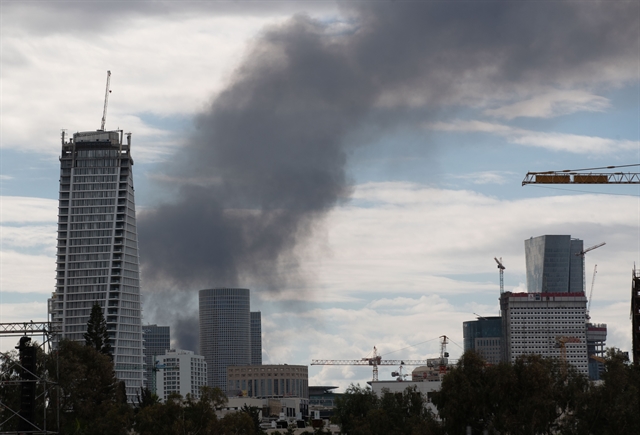 Economy
Economy

" />In the distribution relationship, the principal can deliver goods to a number of different agents. Therefore, drafting of the agent agreement, which not only meets the required needs, but also ensures the rights of the parties, should be taken into account.
 |
In the distribution relationship, the principal can deliver goods to a number of different agents. Therefore, drafting of the agent agreement, which not only meets the required needs, but also ensures the rights of the parties, should be taken into account.
The following five issues must be noted when negotiating the delivery term in an agent agreement:
Unstable location of delivery
Since it depends on the characteristics of each purchase order, delivery time, categories and the number of ordered goods, the location may not be specified by the agent.
This will make the principal become passive in determining the appropriate time of delivery and the accurate transportation costs, which may lead to the risk of unexpected costs incurred.
Thus, in cases where there is no specific location of delivery, the agent party must first be responsible for sending notice to the principal on the location of delivery. The notification must be made in a suitable form (text, soft copies and email) issued from a competent person and the parties also need to have an agreement to limit the scope of delivery.
Time limit for receiving goods
The process of receiving goods must take place in accordance with the agreed period of time for parties to achieve maximum business productivity. Typically, the time limit for receiving goods is calculated from when the principal presents the goods at the location of delivery except as otherwise agreed upon.
At the same time, solutions on penalties and compensation for damage should be noted in the agreement when:
(1) The time for receiving goods is later than the agreed time limit;
(2) The time for receiving goods is 24-hours late, commencing from the time of delivery when the agent was supposed to have received the goods, and;
(3) A notice is sent from the agent to the principal in connection with not being able to receive the goods (cancelling the purchase order) after the principal has initiated the delivery.
To avoid cancelling the purchase order once the delivery is in process, the agreement should have a specific definition on the act of “starting delivery,” e.g.: “starting delivery means any activity that is construed as the start of the delivery, including but not limited to loading goods onto vehicles for transporting to the location of delivery or when the vehicles begin to move to the location of the delivery.
Responsible for preparation for receiving goods
To ensure delivery by parties is efficient, the agent agreement must require the agent to execute appropriate actions as preparation for receiving goods, which involves:
(1) ensuring the arrangement of adequate storage space and area;
(2) having storage environment appropriate to the conditions of goods (specifically conditions on air humidity, lighting, indicators of other substances in the air which are capable of affecting the goods);
(3) preparing appropriate human resources for unloading, ensuring accurate technical operation, avoiding damage to the goods.
Consignee: In order to confirm legal status of the consignee, the principal should request a lawful Letter of Recommendation or Power of Attorney from the agent when the agent assigns the consignee staff.
In addition, the contemplated solutions must be noted in the agent agreement in cases where the delivered goods are not in accordance with the purchase orders.
Written confirmation of delivery
Unless the principal strictly complies with the written confirmation form, such party will bear a very high level of risk when dispute over delivery occurs. In fact, there were a number of cases where the agent claims that the consignee staff has not been legally authorized or is incompetent. Therefore, once the principal agrees to deliver the goods to the staff, the damage incurred will be borne by the principal.
As a result, written confirmation of delivery must be made with at least two copies so that each party will keep one copy. It will only be valid when the competent representatives of the two parties sign the confirmation.
In addition, the agent agreement should also mention the cases where the principal is entitled to suspend the delivery of goods and those cases for changing and returning the goods after the agent has received the goods. — PLF Law Firm




